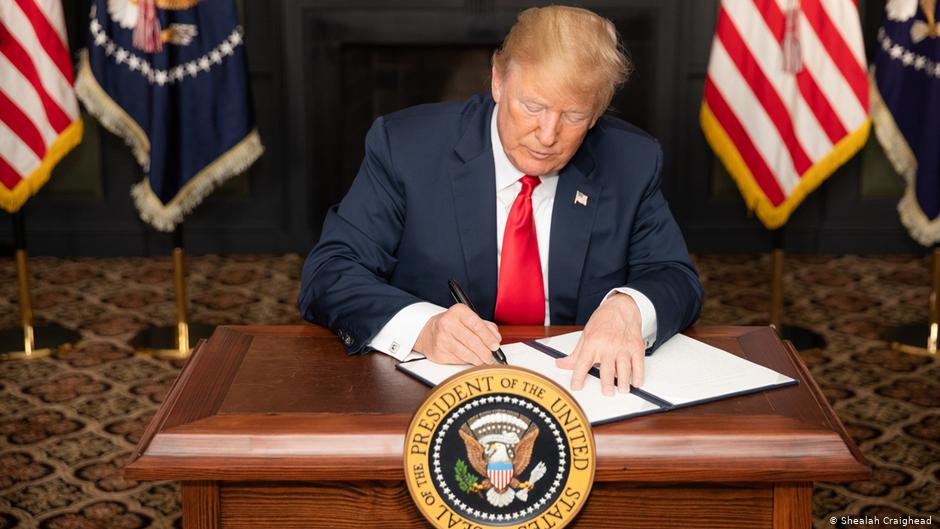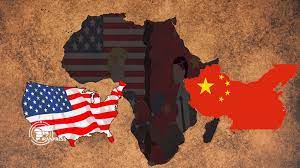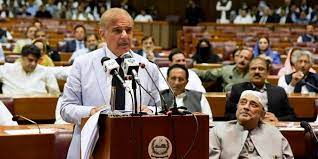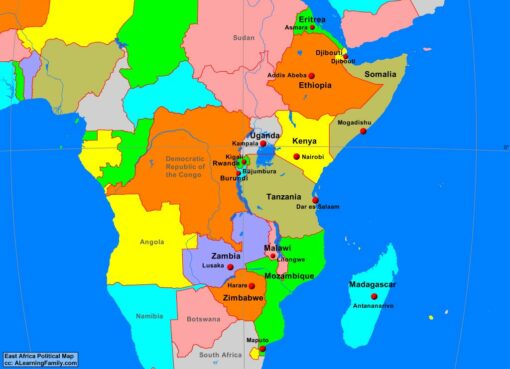by Prasad Nallapati
With just about a month for expiry of the current waiver from sanctions for importing Iranian crude oil, the Trump administration is coming under severe pressure from the Congress to stop any further exemptions. The six-month waiver, which permits India and seven other countries to continue purchasing Iranian crude oil, expires on May 4.
Leading Republican Senators demand nothing less than “maximum pressure” as promised by President Trump to choke off the Islamic Republic’s resources. Senators Ted Cruz, Marco Rubio and Tom Cotton, represent the hardline group that vehemently oppose any further extension of the waivers from Iranian sanctions when their current
term expires.
They view, according to online portal the `Washington Free Beacon’, that international oil markets have more than enough surplus capacity to offset losses of Iranian oil and hence there was no reason to worry about market destabilization. One of the main concerns of the Trump administration on crude oil waivers was a possible disruption of oil supplies and consequent surge in prices affecting the world economy.
The issue is being debated within the administration. The National Security Council appears to be leaning toward a view that there is no good reason to issue more oil waivers. The Free Beacon quoted a senior official saying, “The administration’s goal, as has been repeatedly made clear, is to get to zero exceptions and the oil market
appears well positioned to deal with the removal of Iranian barrels.”
The State and Treasury departments, however, do not see the situation as simple as that, although their policy goal remains to get all countries to stop purchasing crude from the Islamic republic as quickly as possible. They do understand the hardships that the eight countries with waivers face in case of a zero tolerance and the State department is working with them to gradually cut down the dependency. They are therefore pushing for an extension of the waiver for another six months but on terms negotiated with each of the eight countries for reduced intake.
India’s Foreign Secretary Vijay Gokhale has had talks with Secretary of State Mark Pompeo earlier this month in Washington DC and the issue of extending the waiver was one of the main agenda points. South Korea too seem to have received a positive signal when officials from the two countries met in Seoul.
India is currently importing about 300,000 barrels of Iranian crude per day and is seeking to maintain that level. It was earlier importing some 560,000 bpd. South Korea is now being permitted to import 200,000 bpd of condensate as against 350,000 bpd prior to the sanctions. China is importing 360,000 bpd as against 658,000 bpd prior to November last year. This does not include oil produced by projects in Iran in which Chinese companies have an equity.
Turkey was more reliant on Iranian crude than any other country with half of its imports coming from Iran in the first half of the last year. As per the limits under the waiver, it is now allowed to purchase only 60,000 bpd as against 230,000 bpd. The other four countries, Japan, Italy, Germany and Taiwan are not as dependent as other countries on Iranian crude and can easily take further cuts.
Iraq is in a different league as it imports electricity and natural gas from Iran. The State Department last week allowed Iraq another 90-day waiver from the sanctions as the previous exemption expired on March 19, according to Iraq oil report. Iraq is heavily dependent on these imports across the border. Severe power shortages last summer witnessed serious protests throughout the country.
Iraq told the Americans that it can stop its dependence on Iran’s electricity in two years, but it would be very difficult to reduce gas imports, as they are crucial for its power generation. The two countries are, however, working on alternate means to quickly reduce this dependency.
Although the State department seeks to go along with another extension for the eight countries for crude oil purchases, there are several other complicating factors in bilateral relations between the US and the countries with the waiver. These are mainly trade issues, but the ties with Turkey have further deteriorated in the past six months over security and geo-strategic issues. Ankara’s refusal to heed to American advice on purchase of Russian S-400 missile defense systems and its role in Syria may trigger several other counter measures.
The Congressional pressure cannot be underestimated as Republicans are increasingly taking an independent position on a number of foreign policy and domestic issues. President Trump does not command same influence that he had at the beginning of his term. He lost the control of the House to Democrats and Republican Senators are critical of the Administration’s conduct.
The GOP lawmakers are thus expected to bring heavy pressure on the Trump administration to stop any further extension of the waiver. “Every waiver for Iran either allows them to work toward their nuclear goal, or pays for terrorists to attack us, or both,” Sen. Cruz told the Beacon.
Sen. Cotton remarked that the cash windfalls Iran receives from its lucrative oil trade go to fund its global terror operations, which have targeted American forces in the region, as well as its allies such as Israel and Saudi Arabia.
Republican members of the House, such as Mike Gallagher and Liz Cheney, may also initiate legislative measures to stop granting the waiver.
The Democrats, on the other hand, are equally poised to save the nuclear accord (Joint Comprehensive Plan of Action or JCPOA) that the Obama administration and European allies have toiled to stitch together with Iran. President Trump withdrew from the JCPOA in May last year charging it as a one-sided treaty allowing the Islamic
Republic to continue with its nuclear and missile development.
Democratic Presidential hopefuls, who propose to challenge Donald Trump next year, have vowed to rejoin the deal without preconditions should they win the presidency, as long as Iran continues to live up to its end of the 2015 pact. With the House under Democrat control, it is unlikely that Republicans could push through any hardline legislation there.
Meanwhile, Iran and Europe have established, despite Trump’s displeasure, a special institutional mechanism for trade between the two in a bid to save the JCPOA. Iran registered last week `Special Trade and Finance Institute (STFI) to work with the Instrument in Support of Trade Exchanges (INSTEX) that European signatories of the
JCPOA set up in January last year in Paris. The exchange mechanism is expected to trade initially food, medicine and medical devices and gradually extend to other areas. However, the process is slow, and a lot of loose ends are yet to be tied up for a meaningful trade mechanism to emerge.
The recent triangular agreement between the defence ministers of Iran, Iraq and Syria to open their borders has further irked the US, which sees it as a facilitator for Tehran to supply arms and other equipment to its proxies in Syria and Lebanon. President Trump has declared recognizing the Golan Heights as Israeli territory, annulling a long-held policy of it being a disputed territory. Israel wrested the Golan Heights from Syria in the 1967 war.
Despite these geo-political complications and Congressional pressures, India and other countries are likely to get another waiver from Iranian sanctions, albeit with reduced limits of crude intake. The other strategic projects that India is undertaking in Iran, like the Chabahar Port development, may continue unaffected.
This article was published in Economic Times on March 28, 2019)




